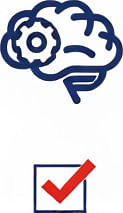Workplace Accommodations for Enhancing Productivity with ADHD
 by Thaddeus Blanda
by Thaddeus Blanda
Explore effective accommodations that support adults with ADHD in the workplace, helping to improve focus, reduce overwhelm, and foster a more productive environment. These strategies offer practical ways to thrive professionally while managing daily challenges.

Many adults with ADHD face unique hurdles at work, such as difficulty maintaining focus or organizing tasks. These challenges can affect performance, but simple adjustments can create a more supportive setting. For instance, flexible scheduling allows individuals to align their work hours with their energy levels, making it easier to tackle demanding projects.
One key approach involves breaking down large assignments into smaller, manageable steps. This method helps prevent feelings of being overwhelmed and builds a sense of accomplishment. Consider using tools like digital planners or apps that send reminders; these can gently guide the workflow without adding extra pressure. In a busy office, quiet spaces or noise-cancelling headphones might also be beneficial, offering a way to minimize distractions and maintain concentration.
Communication with colleagues plays an important role too. Sharing needs openly can lead to mutual understanding and team support. For example, regular check-ins with a supervisor can provide feedback and adjustments, ensuring that goals remain achievable. Another helpful technique is incorporating short, frequent breaks into the day. These pauses allow for mental reset, which is essential for sustaining energy throughout the workday.
When it comes to physical setups, ergonomic adjustments like adjustable desks or comfortable seating can make a difference. Such changes promote better posture and reduce fidgeting, which often accompanies ADHD. Additionally, prioritizing tasks based on urgency and interest can streamline efforts, turning potential procrastination into proactive planning.
It's encouraging to note that many organizations now recognize the value of these accommodations. They not only aid individuals but also enhance overall team dynamics. For those starting out, beginning with one or two changes can build confidence and lead to noticeable improvements. Over time, combining strategies like task prioritization with regular exercise routines outside of work can further boost cognitive function.
In practice, adults with ADHD might experiment with different methods to find what works best. For example, setting specific, realistic daily goals can provide structure without rigidity. Lists or visual aids offer a clear overview, helping to track progress and celebrate small wins. Remember, seeking professional advice from a coach or therapist can offer personalized insights, empowering individuals to refine their approaches.
Ultimately, these accommodations are about creating an environment where strengths shine. By embracing supportive strategies, adults and young adults with ADHD can achieve greater satisfaction and success in their careers, turning everyday challenges into opportunities for growth.
